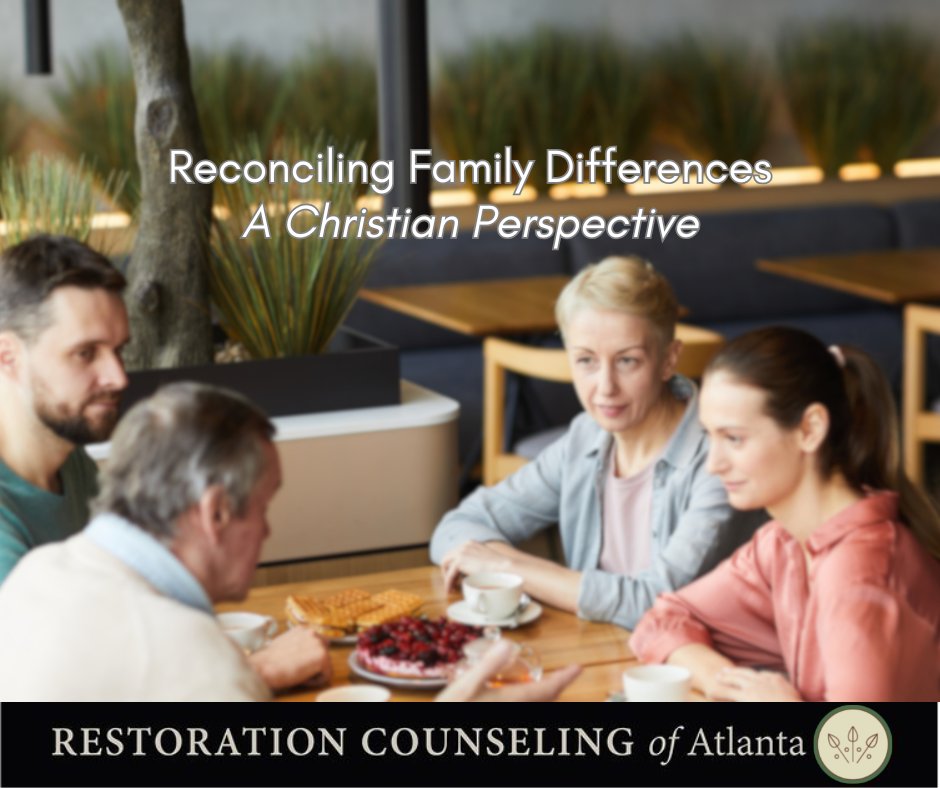There are few things more painful than a rift within your family. No one sets out to have these occur, but as people grow and change, navigate new stages of life, and become more appropriately independent, many opportunities arise for differences and then conflict. Families are meant to be a haven of love, security, and support. Yet disagreements, misunderstandings, and even deep hurt can arise even in the closest-knit Christian families. The process of reconciliation—restoring broken relationships—is central to the Christian faith, mirroring the reconciliation God offers humanity through Christ. Drawing from Scripture and Christian wisdom, here are four key principles for reconciling family differences.
1. The Importance of Forgiveness
Forgiveness lies at the heart of the Gospel. Jesus’ sacrifice on the cross was the ultimate act of forgiveness, and He calls His followers to extend that same grace to others:
“Be kind to one another, tenderhearted, forgiving one another, as God in Christ forgave you.” (Ephesians 4:32)
Forgiveness does not mean ignoring hurt or pretending nothing happened. Rather, it is the decision to release bitterness and refuse to be ruled by resentment. It requires working through forgiveness even when repentance isn’t offered or isn’t offered in the way we were anticipating. In a family, this means believing that healing is possible, even when emotions are raw or history is painful. Forgiveness may need to be a daily act, especially when trust has been broken. Rather than looking to the worthiness of the person we need to forgive, it is better to recognize the greater forgiveness we have received from Christ and let that be our motivator for offering forgiveness in love. Without forgiveness, reconciliation stalls. Forgiveness opens the door for mutual understanding and, eventually, restoration.
2. Recognizing How Others Experience You
Often, we approach conflict convinced of our own rightness without pausing to consider how others might be experiencing us. Jesus teaches us to remove the plank from our own eye before addressing the speck in our brother’s (Matthew 7:3-5). This requires humility and self-reflection.
Ask yourself:
- Do I come across as controlling, dismissive, or judgmental, even if I don’t mean to?
- Have I listened deeply to how my words or actions impact others?
- How intense am I in interactions?
- Am I letting my own anxiety for reconciliation or to be right drive the way I handle these interactions?
Genuine reconciliation starts when we stop defending our intentions and start acknowledging our impact. Understanding how family members experience us—even if we don’t agree with their interpretation—builds empathy and opens space for healing.
3. Learning About Your Posture in Conversations
The posture we adopt in conversations—whether defensive, open, aggressive, or passive—shapes the emotional climate of our interactions. Proverbs 15:1 reminds us: “A gentle answer turns away wrath, but a harsh word stirs up anger.”
In moments of tension, it’s vital to check our posture:
- Are we listening to understand or just to reply?
- Do we come into the conversation with a spirit of humility or with the goal of winning?
- Is our tone inviting or confrontational?
- Have we assumed we understand what the conflict is about?
Adopting a posture of peace, even amid disagreement, reflects the character of Christ and fosters an atmosphere where difficult conversations can bear fruit. Seeking to learn rather than convince and listening rather than speaking can often change the dynamics in a given interaction.
4. Recognizing What Sets Off Reactivity in Interactions
Family dynamics are often loaded with emotional history. A seemingly small comment can trigger a big reaction—defensiveness, accusations, or shutting down. This reactivity often points to deeper wounds or unresolved issues. James 1:19 offers wise counsel:
“Let every person be quick to hear, slow to speak, slow to anger.”
When we recognize our triggers and anticipate what might provoke emotional escalation, we can respond more wisely. Take time to reflect on questions like:
- What types of comments make me feel attacked or dismissed?
- When do I tend to get defensive, and why?
- What past hurts are influencing my present reactions?
- What accusations am I offering that will escalate hostility in our interactions?
Understanding our emotional patterns allows us to pause before reacting and invite the Holy Spirit to guide our responses with grace and truth.
Final Thoughts
Reconciliation is rarely simple, especially within families. It takes courage, patience, and the willingness to do deep inner work. But Christians are called to be agents of peace and reconciliation, beginning in our own homes. With forgiveness as our foundation, empathy in our interactions, and self-awareness in our communication, we reflect the reconciling love of Christ.
As the Apostle Paul writes:
“If it is possible, as far as it depends on you, live at peace with everyone.” (Romans 12:18)
May we be willing to take the first step, trusting that God’s grace is sufficient to heal even the most broken relationships.

Written by: Jennifer Stuckert, MA MFT, LPC, ACS, CPCS, NCC, Clinical Director
jennifer@restorationcounselingatl.com, ext. 111
Jennifer uses distinctly Christian counseling to help struggling individuals, couples, and families. She has served as the director and supervisor of the staff of Restoration Counseling of Atlanta since 2009. She has two decades of counseling experience, helping people gain relief from life challenges. Jennifer uses biblically sound methods with a specific emphasis on adaption according to personality and learning styles, and is also certified in EMDR.

